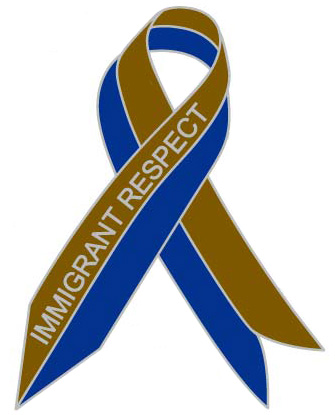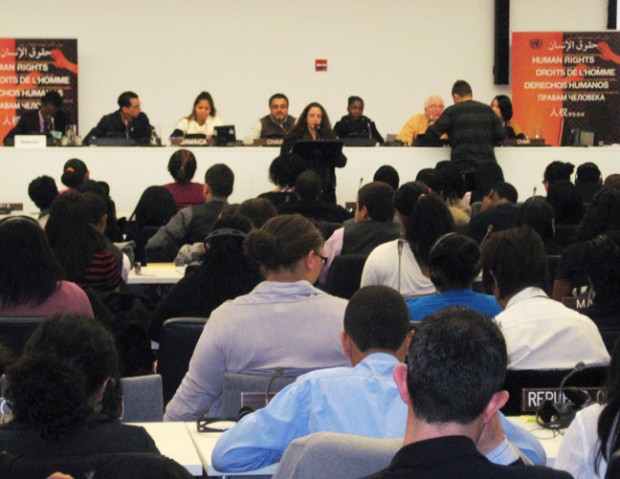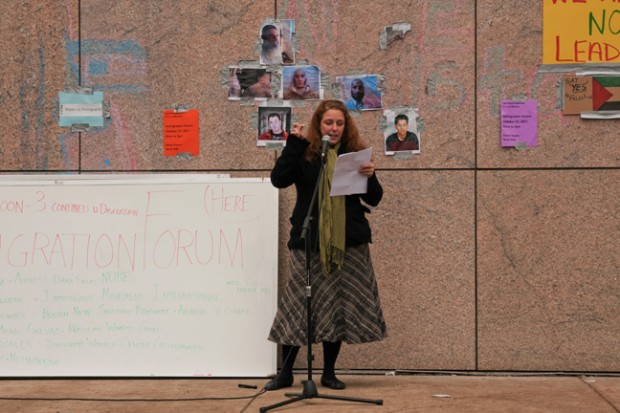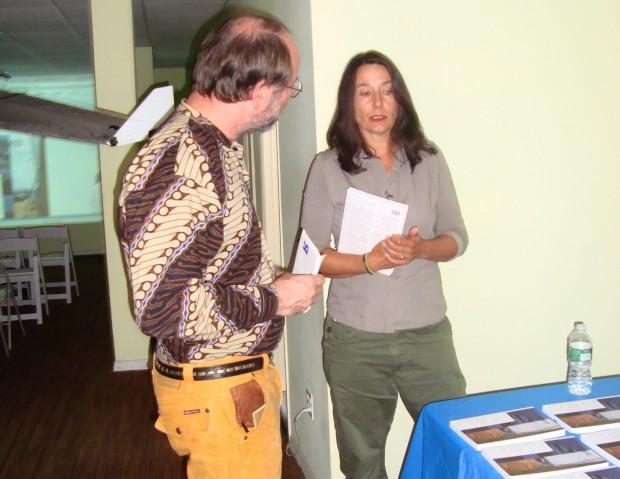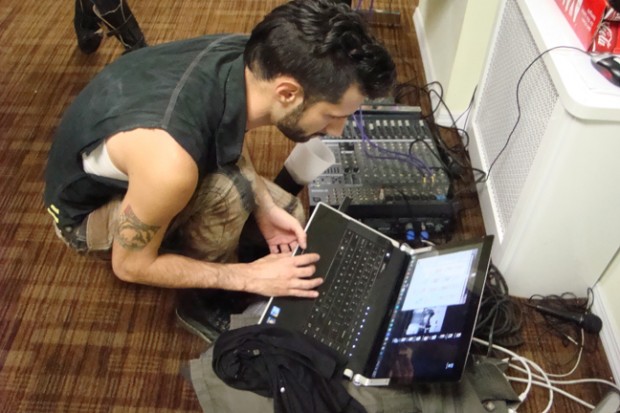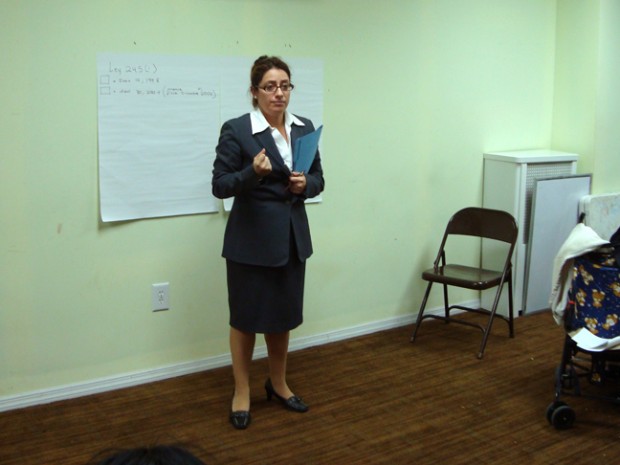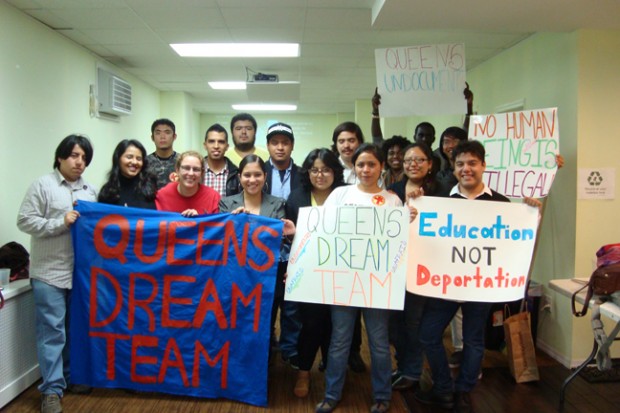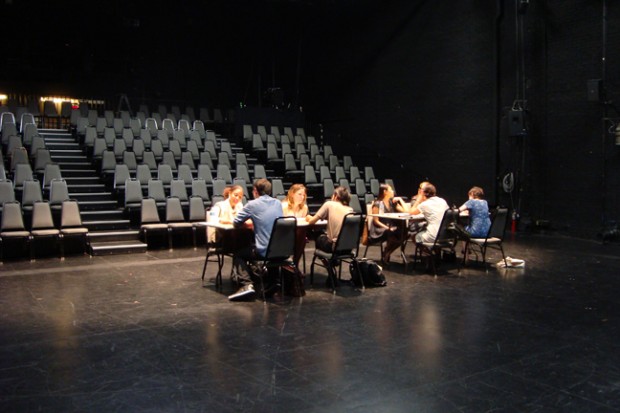Past Events
RE-CONCEPTUALIZING THE 21ST CENTURY (IM)MIGRANT
IM International held a two-day convening on November 4th and 5th, engaging (im)migration experts from both local and international communities, activists and community leaders from social service organizations, elected officials and academics. The event focused on re-defining what it means to be a (im)migrant in the context of the 21st century, establishing a new framework for analyzing this multifaceted concept. The meeting concluded with the first draft of a migrant manifesto that will be used directly in our call to action on December 18th, the United Nations’ International Migrants Day.
OPEN INVITATION FOR ACTIONS ON INTERNATIONAL MIGRANTS DAY
Leading up to December 18, designated “International Migrants Day” by the United Nations, Immigrant Movement International is mobilizing artists, immigrants, activists, and interested members of the public across the globe to develop projects related to the issues and experience of migration. Here’s what you can do to get involved:
- Participate by clicking on “Submit A Report” and adding your idea for an action – such as a public performance, panel discussion, or community gathering that highlights, asserts, and promotes the fundamental human rights, freedoms, and dignity of migrants and their families.
- Read the “Migrant Manifesto” aloud as part of your action or as the action itself (suggested).
- Track other participants’ actions as they happen in real time across the globe via the interactive map of the world below. Each red point on the map identifies the locations of each action.
- Document your action on December 18; then submit images, videos, links, comments, and reflections on your experience participating in this historic project.
For more information, see tabs below. For questions email united@immigrant-movement.us.
THE FIRST PUBLIC READING OF THE MIGRANT MANIFESTO
On December 2nd, 2011 Immigrant Movement International community members, all from different countries, read the Migrant Manifesto at the annual United Nations Students Conference on Human Rights.
Read the United Nations’ official letter of support for the December 18th artist actions.
More about the United Nations International Migrants Day
April 23, 2011: A Conversation on Useful Art
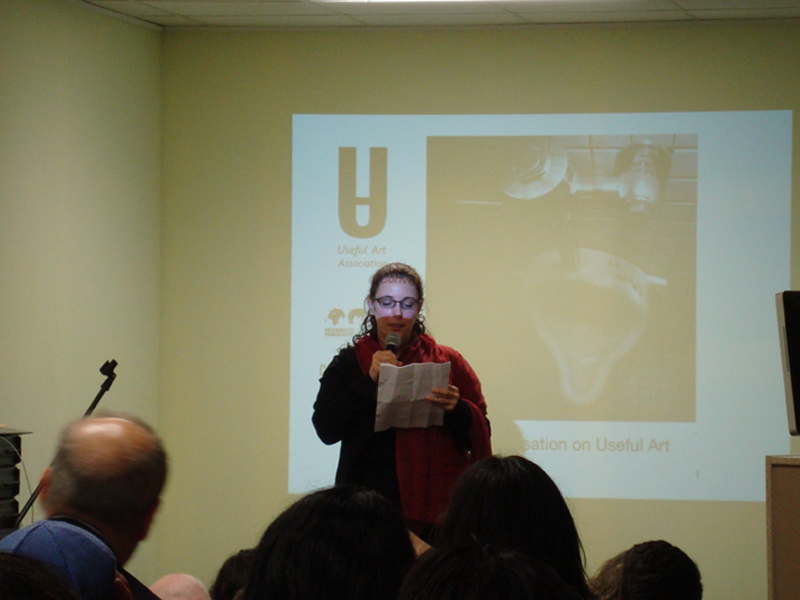
(Check out the photos from the event)
The event, held in conjunction with the Useful Art Association, featured an introduction by Tania Bruguera, followed by a series of brief presentations with Mel Chin, Beka Economopoulos from Not An Alternative, Rick Lowe, Jorge Munguia from Pase Usted, and Patrick Bernier/Olive Martin followed by responses from Nato Thompson, Chief Curator at Creative Time; Tom Finkelpearl, Executive Director, Queens Museum of Art; Larissa Harris, Curator, Queens Museum of Art; and Gregory Sholette, Chair, MFA Studio Art Program, Queens College CUNY. Claire Bishop, Associate Professor of Art History, CUNY Graduate Center, representatives from local immigrant community organizations Make the Road, New York, and N.I.C.E. (New Immigrant Community Empowerment), and New York City Council Member Julissa Ferreras.
Video Documentation of A Conversation on Useful Art
Part 1. Definition of Useful Art and Introduction – Tania Bruguera
Part 2. Not an Alternative: Let It Out
Part 3. Mel Chin: Revival Field
Part 4. Rick Lowe: Project Row Houses
Part 5. Patrick Bernier and Olive Martin: Jurisprudence
Part 6. Pase Usted: Genera
Part 7. Disscussion
October 23, 2011: Immigrant Movement International @ OCCUPY BOSTON
The Occupy Movement gave me back the possibility of believing in democracy and in the power of the people. This is beautiful. I love you.
The first “free” elections I witnessed in my life were in the United States in the year 2000. I was extremely excited. After so many years hearing about democracy, I was here in the United States – the place FOR and ABOUT democracy. Now I would learn what that was all about.
The night of the election, I remember listening to my American friend’s explanation of the electoral college. My friend, a citizen who voted, was not as excited about the process and went to the other room to keep working. I wondered why she would not want to be with me, looking towards next 4 years of her country, when she was always in front of the TV to see every detail of a football game. I did not understand this seemingly misplaced enthusiasm. Did she not care or was it that working and earning money was more important than who governs? I was truly disturbed, alone in the living room locked into the TV reports, pen-in-hand, tracking the election on a color map of the country I’d taken from the newspaper, with of course a glass of Coca Cola. I was so excited, I was extremely attentive, I didn’t want to miss any detail, I was learning. I felt this knowledge could benefit my country – Cuba – at another moment. I could spread the word of what democracy was and how it functions. I felt I was being given a very special gift.
Then the Florida vote was announced. Gore wins! I run to inform my friend, who is surprised and kind of glad, but keeps typing, seeming amused by my enthusiasm. In a little bit I come back to inform my friend that the Florida vote has gone to Bush. My friend was enraged – because I was interfering in her work. She explained to me again with frustration how I did not understand democracy and how my lack of English didn’t help. She said an immigrant could not understand democracy, of course. But I had understood. In the next days, the controversy unfolded, and my fears were justified. As an immigrant, my first encounter with democracy was witnessing a broken system. I was devastated. Where would I look to now?
In the following days of deception, I kept telling my friends to go to the streets, to go and protest. I wanted to see here what I could not see in my country – free expression, direct democracy, the power of the people. My friend told me that Americans believed in the system and they had to go with the law. I was paralyzed, I was not given “permission” to participate, I was told that it was not “my” problem. I was wandering around like a political zombie, confused while I was witnessing the birth of a capitalist dictatorship, something I could identify because I had seen it in the country I came from.
I’m always surprised when people dismiss the knowledge an immigrant brings with them.
Immigrant is a word that I struggle to understand. I don’t understand the need to separate people because of the place they were physically born. One can be born more than once, one can decide to start over, and that is what happens when people leave their countries of origin, when they come to the United States. They are re-born.
But to have a second chance in the United States comes with a handicap. As an immigrant you are considered a second class citizen, you have to see your daughter go to work as an eternal waitress even when she has the best grades in her high school and wants to go to college and become a great biologist. That dream is not going to happen because of laws made to separate people, and to perpetuate modern slavery. The fact that you came here with a dream will not give you access to that dream.
We speak mostly of the immigrants who “made it” – the ones that have millions and are celebrities – but what of those many amazing people who are immigrants and have not been allowed to make it? Why do they have to be criminalized for the sole reason that they are not part of the 1%? The immigrants that I know are the bravest people I have ever met. They are the ones believing, they are they ones keeping the American Dream alive, even when it is evident that they hardly have access to it, when the American Dream has become a mirage.
Nobody has the right to kill someone’s dream. Nobody has the right to make the American Dream illegal.
Yesterday we were at ROCA in Chelsea, talking with a wonderful group of people, mostly immigrants. We ended the conversation by talking about what each of us want for the children of our communities – immigrant children. Everyone said to be treated as an equal. I have heard that before, when people talk about the years of the civil rights battles. Immigration is today’s civil rights battle. Immigration is a war, created by the 1%.
Immigrant is a word that does not represent us, we are not defined by being a person that comes from another place, we are not cheap labor for wealthy companies, we are a new global class. We are the engine of change – and the Occupy Movement is proof of that.
The call for this movement came from Adbusters, a Canadian magazine. A few weeks before we started to occupy Wall Street, the first planning meetings included people, living in the United States, who came here from Greece, Spain, Tunisia and Egypt, people who were transmitting their knowledge, their experience with earlier movements. It was from them that we learned the ways in which the General Assemblies were conducted, the contradictions and challenges we were going to go through with our movement. They were here and they were part of our movement. Some of them where undocumented immigrants and their status was not important to any of us planning the occupation – nobody asked about their legal status. We were all living together. The movement grew, more people joined, many immigrants blending with the rest as equals, dedicating their knowledge and sleepless hours, so that we could together build this amazing movement – a global movement redefining the very idea of democracy.
In this movement – a movement that speaks beyond borders – it makes no sense to cling to an old definition of national identities that restrict who people can be, what they can contribute and whether they can participate. This is a time of responsibility – a responsibility first to make this space safe for all, including immigrants, and then a responsibility to take this new democracy beyond this square.
Tania Bruguera, October 23, 2011
————————————————————————————————————————————————————————————–
October 9, 2011: OPEN #21 (IM)MOBILITY. EXPLORING THE LIMITS OF HYPERMOBILITY
open #21 (im)mobility. Exploring the limits of hypermobility
Contributions by Brian Holmes, Florian Schneider, Marc Schuilenberg, and John Thackara. Interview with David Harvey.
Advanced communications technologies seem to be paving the way for an increase in physical and motorized mobility. At the same time, these accelerating flows of data and commodities stand in sharp contrast to the elbow room afforded to the biological body, which in fact is forced to a standstill. And while data, goods and capital have been freed of their territorial restrictions, the opposite is true for a growing proportion of the world’s population: border regimes, surveillance and identity control are being intensified at a rapid pace. In short, we are seeing both an uncurbed and uncontrolled increase of mobility and segregating filtrations. This issue of Open explores the internal contradictions of prevailing mobility regimes and their effects on social and physical space.
Open investigates the contemporary conditions of public space and changing notions of publicness in a structural manner in relation to cultural production. This implies an experimental and interdisciplinary exposition of the reality, possibilities and limitations of the current public domain, in particular from sociological, philosophical, political and artistic perspectives. Within the framework of this ‘project in progress,’ themes such as safety, memory, visibility, cultural freedom, tolerance, hybrid space, the rise of informal media, art as a public affair, manipulative, precarity and privacy have been examined.
Open is edited by Jorinde Seijdel (editor in chief) and Liesbeth Melis (final editing) and appears twice a year in a Dutch-language and an English-language edition. The graphic design is by Thomas Buxò and Klaartje van Eijk. Open is an initiative of SKOR | Foundation for Art and Public Domain, Amsterdam (www.skor.nl) and is published by NAi Publishers.
For information, ordering and subscriptions see: info@naipublishers.nl and www.naipublishers.nl.
————————————————————————————————————————————————————————————–
October 7, 2011: Temporary Status: Bulgarian Artists in America Exhibition & Party
Immigrant Movement International hosted the opening of TEMPORARY STATUS, an exhibition that highlighted artists of Bulgarian origin who live in the U.S. The works presented at IM International were by Miryana Todorova, Georgi Tushev, Joro De Boro, Stanislava Georgieva, Daniela Kostova, Olivia Robinson. Their works are collaborations among the show’s participants, and reflect their immediate surroundings while creating a complex system of connections. They address issues of visibility, collectivity, crossing boundaries and overcoming limitations.
————————————————————————————————————————————————————————————–
October 5, 2011: Workshop with Immigration Lawyer Ana Maria Bazan
————————————————————————————————————————————————————————————–
October 2, 2011: Queens DREAM Team Town Hall Meeting
Organized by the New York State Youth Leadership Council this townhall meeting was the third in the New York State series of meetings, in which the community learned about the NY DREAM Act with facts and stories of undocumented youth. Elected officials, pro-immigrant organizations, community members and undocumented youth joined this gathering. The public was informed on the requirements, benefits and effects of the state bill. The New York DREAM Act was introduced in March 2011 by State Senator Bill Perkins and Assemblyman Guillermo Linares. This bill would provide certain benefits to qualifying New York undocumented immigrant youth, such as driver’s licenses, work authorization, access to health care and state-granted financial aid for college.
————————————————————————————————————————————————————————————–
June 7, 2011:
As part of Foreclosed: Between Crisis and Possibility, Immigrant Movement International presented a public performance at The Kitchen’s auditorium. Through this performance,IM International seeked to address the foreclosure of immigrants from political representation.
————————————————————————————————————————————————————————————–
June 6, 2011: Legal Education Workshop for Young Immigrants: Street Law: KNOW YOUR RIGHTS

(Check out the photos from the event)
Centro Comunitario’s-Juvenile Justice Project, in partnership with Latino Lawyers Association, Immigrant Movement International, and CUNY Law School’s LALSA, presents StreetLaw: Know your Rights workshop. This workshop will provide young immigrants with information on their rights and responsibilities when dealing with the threat of stops and raids by police and Immigration & Customs Enforcement officials.
Presenters: Mercedes Cano, Elizabeth Cordoba, Anthony Posada
